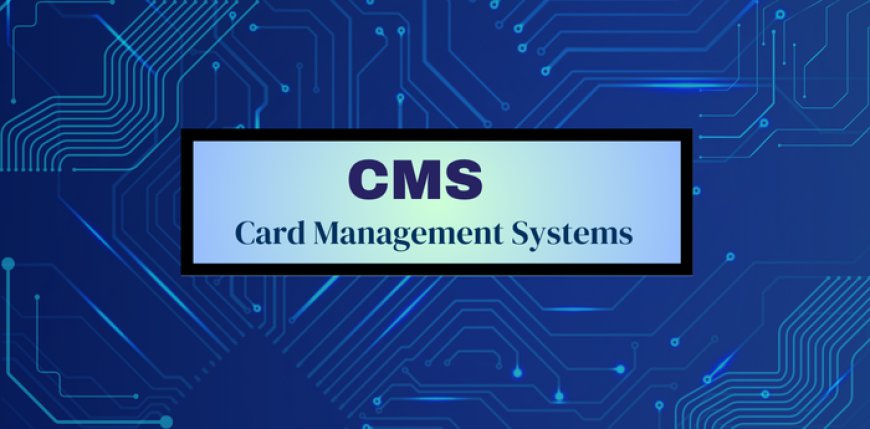The Evolution and Importance of Card Management Systems

In today’s digital age, the management of payment cards has grown significantly in complexity and importance. With the proliferation of digital payments, e-commerce, and mobile wallets, the role of Card Management Systems (CMS) has become central to the financial industry. This article delves into what CMS are, their core functionalities, benefits, and their future in a rapidly evolving financial ecosystem.
What Are Card Management Systems?
A Card Management System (CMS) is a software platform that facilitates the lifecycle management of payment cards. This includes credit, debit, prepaid, and virtual cards. Banks, financial institutions, and fintech companies rely on CMS to issue, process, and manage cards while ensuring seamless integration with payment networks like Visa, MasterCard, and local networks.
CMS ensures that cardholders and businesses can transact securely and efficiently, offering functionalities such as card issuance, personalization, fraud detection, and reporting. The QKS Group is a leading provider in this space, offering innovative solutions to financial institutions.
Core Functionalities of Card Management Systems
Card Management Systems are multifaceted platforms that perform several crucial functions:
- Card Issuance and Activation: CMS enables financial institutions to issue physical or virtual cards to customers. This includes assigning card numbers, embedding security features, and activating the cards for usage.
- Card Personalization: Personalization options include imprinting names, chip encoding, and designing custom card appearances based on the customer’s preferences or institutional branding.
- Transaction Processing: CMS interfaces with payment networks to authorize and process transactions in real-time, ensuring security and accuracy.
- Fraud Prevention and Risk Management: Advanced CMS integrates machine learning and AI to detect unusual patterns and mitigate fraud risks. Features like real-time alerts, geolocation tracking, and transaction limits add layers of security.
- Lifecycle Management: From card issuance to expiration or deactivation, CMS manages every stage of the card’s lifecycle, including renewals and reissuance in case of loss or theft.
- Compliance and Reporting: CMS ensures compliance with global standards like PCI-DSS (Payment Card Industry Data Security Standard) and local regulatory requirements. It also provides detailed reporting for monitoring and auditing purposes. The QKS Group emphasizes compliance, ensuring institutions meet evolving standards seamlessly.
- Integration with Digital Wallets: With the rise of platforms like Apple Pay, Google Pay, and Samsung Pay, CMS supports seamless tokenization and integration with digital wallets.
Benefits of Card Management Systems
The adoption of a robust CMS offers a multitude of advantages for financial institutions and their customers alike:
- Operational Efficiency: Automating the processes of card issuance, activation, and transaction processing reduces manual workloads and minimizes errors.
- Enhanced Customer Experience: Customers benefit from faster card issuance, easy activation, and advanced self-service options like instant blocking of lost cards or setting spending limits.
- Scalability: Modern CMS can handle large volumes of transactions and adapt to the growing demands of financial institutions.
- Fraud Mitigation: Real-time monitoring and AI-driven analytics help in identifying and preventing fraudulent transactions before they occur.
- Cost Savings: By streamlining processes and reducing fraud losses, CMS contributes to significant cost efficiencies.
- Customization and Innovation: Institutions can use CMS to launch innovative products, such as co-branded cards, virtual cards, or reward-based programs, tailored to specific customer segments. The Card Management Systems Market Forecast predicts rapid growth driven by these innovations.
Challenges in Implementing Card Management Systems
While CMS offers numerous benefits, implementing and maintaining them comes with challenges:
- Integration Complexity: Integrating CMS with existing banking systems and third-party platforms can be complex and time-consuming.
- Regulatory Compliance: Adhering to evolving global and local regulations requires constant updates to the system.
- Security Concerns: As CMS handles sensitive customer data, it becomes a prime target for cyberattacks. Ensuring robust cybersecurity measures is imperative.
- High Initial Investment: Deploying a comprehensive CMS involves significant costs, which might be a barrier for smaller institutions.
The Future of Card Management Systems
The future of CMS is closely tied to advancements in technology and changing consumer preferences. Here are some trends shaping the future:
- AI and Machine Learning: These technologies will play a pivotal role in fraud detection, personalized customer experiences, and predictive analytics.
- Cloud-Based CMS: Cloud adoption will make CMS more accessible, scalable, and cost-efficient for institutions of all sizes.
- Open Banking Integration: CMS will integrate more seamlessly with open banking platforms, enabling broader financial ecosystems and enhanced customer control.
- Blockchain and Tokenization: Blockchain can enhance transparency and security, while tokenization will continue to secure cardholder data in digital transactions. According to the Card Management Systems Market Forecast, blockchain is expected to drive significant innovations in the next decade.
- Sustainability Initiatives: As the world moves toward sustainability, CMS will incorporate features like issuing eco-friendly cards and encouraging digital-first solutions to reduce plastic waste.
Conclusion
Card Management Systems are the backbone of modern payment infrastructures, ensuring efficiency, security, and innovation in card-based transactions. As digital payments continue to rise, the role of CMS will expand, driving the financial industry toward a more secure and seamless future. Institutions investing in advanced CMS today are not only enhancing their current capabilities but also positioning themselves for long-term success in a competitive market. The QKS Group remains at the forefront of these advancements, offering scalable and secure solutions to its clients.

 jvinay
jvinay